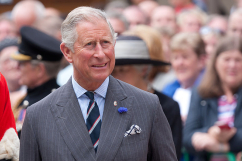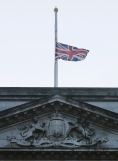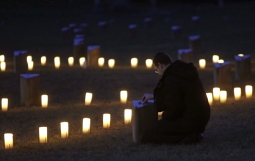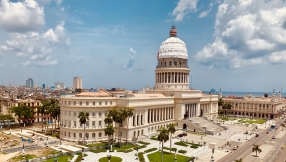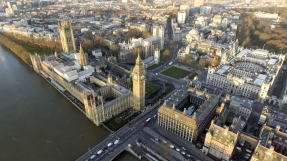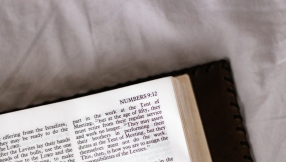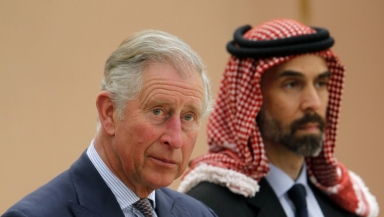
The Prince of Wales has described his fear at how people can be radicalised online.
In an interview with Radio 2's The Sunday Hour this morning, Prince Charles described his "deep concern" for Christian suffering in the Middle East and also spoke of his hopes to "build bridges" between faiths.
The Prince, in Jordan on a six-day tour, said radicalisation and the extent to which it is happening is "the alarming part" and "one of the greatest worries".
He said this was particularly so in Britain, with the values British people held dear.
"You think that the people who have come here, [are] born here, go to school here, would imbibe those values and outlooks," he said.
"The frightening part is that people can be so radicalised either through contact with somebody else or through the internet, and the extraordinary amount of crazy stuff which is on the internet."
The reason some young people went for it was a "search for adventure and excitement at a particular age", he added.

He said: "What I have been trying to do all these years with the Prince's Trust is to find alternatives for adolescents and people at a young age, for constructive paths for them to channel their enthusiasm, their energy, that sense of wanting to take risks and adventure and aggression and all these things.
"But you have to channel them into constructive paths."
Expressing his solidarity for what so many churches are going through in the Middle East, he said: "Christianity was founded in the Middle East, which we often forget. From a morale point I hope it showed they were not forgotten. I wish I could do more. Many of us do wish we could do more.
"I think what doesn't bear thinking about is people of one faith, a believer, could kill another believer. That's the totally bewildering aspect in our day and age."
One answer was to work harder to build bridges. "We have to remember that our Lord taught us to love our neighbour, to do to others as you would do to you and just to go on despite the setbacks and despite the discouragement to try and build bridges and to show justice and kindness to people."










